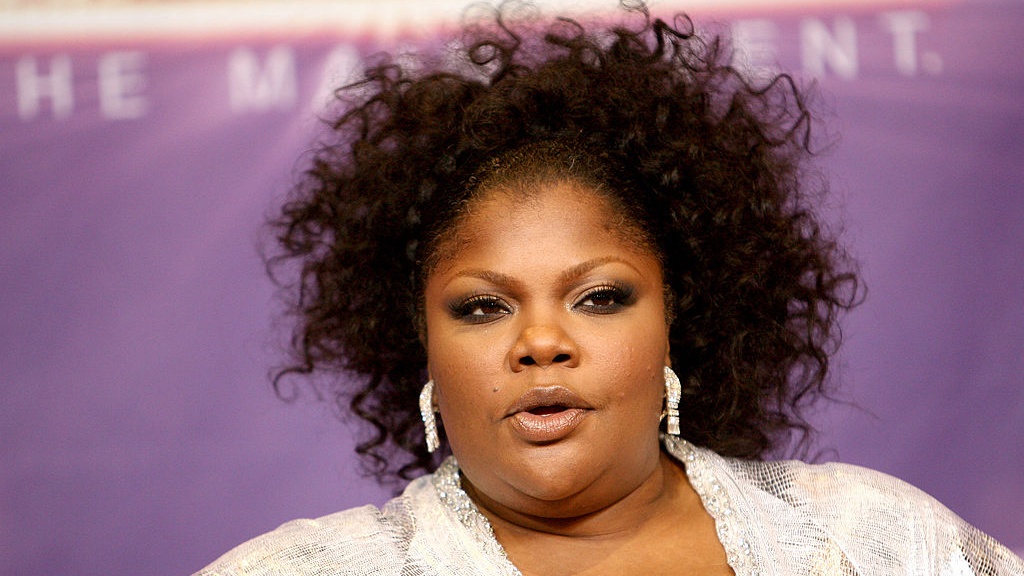Controversial media mainstay and cultural auntie Mo’Nique recently made headlines again. But this time it wasn’t for calling out former colleagues or disclosing alleged racist and sexist business practices. It was because she admonished Black women for wearing bonnets outside of the comforts of home.
“I’ve been seeing it not just at the airport. I’ve been seeing it at the store, at the mall… When did we lose our pride in representing ourselves?” the actress said in a May 29 video while weighing in on a strange and misogynoir-laced conversation of whether bonnets were appropriate to wear outside. “When did we slip away of, ‘let me make sure I’m presentable when I leave my home?’”
However, respectability politics when it comes to Black women seem to be a never-ending race that’s impossible to win. Mo’Nique, of all people, should know that.
Mo’Nique broke into the mainstream as recurring character Nikki Parker on UPN’s Moesha which spun off into a starring role on The Parkers. She went on to helm her own self-titled late-night talk program, The Mo’Nique Show. But before that, she was a well-known urban stand-up comedian who wasn’t afraid to be risqué or honest about her life as a Black woman. The Queens of Comedy star was particularly known for discussing the weight discrimination she faced as a plus-sized woman and her distrust of “skinny b***hes.”
She even authored a book about it.
“Mo'Nique strips away the stigma of being weight-challenged and introduces a new vocabulary in which F.A.T. is FABULOUS AND THICK and a woman who is “skinny” is just plain evil,” read the 2004 press blurb of Skinny Women Are Evil: Notes of a Big Girl in a Small-Minded World. “Why? Because America gives them the comfortable airline seats, the fashionable clothes, and the lead roles in the Hollywood blockbusters."
Mo’Nique built a foundation on being a woman confident in her appearance despite critics or outside noise. The multi-hyphenate even admitted to having just begun shaving her legs a few years ago. And let's not forget how she destroyed the stage in a 2004 rendition of Beyoncé’s “Dangerously In Love,” mainly just because people thought she couldn’t.
(Years later, she expanded her position on weight, saying that she had been “a child” in her way of thinking, coupled with embarking on a public health campaign that has left the 53-year-old entertainer snatched.)
Yet, the fact remains that her insistence to not be judged by European weight standards, while confidently professing her sex appeal, undoubtedly paved the way for young artists. For instance, Grammy-winning performer Lizzo has been enthralled in a battle with fatphobic soundbites in between her domination of pop music and messages of body positivity. Mo’Nique has always been outspoken in championing self-love by one’s own standards — tone and attitude be damned.
In 2010, Mo’Nique won a best supporting Oscar for her scene-stealing portrayal of an abusive mother in Lee Daniel’s Precious. Her controversial acceptance speech, in which she lamented industry politics, kicked off a “he said, she said" saga that has lasted almost 12 years and enveloped almost every Black Hollywood industry titan. This all stemming from her perceived difficulty on the campaign trail or her refusal to over campaign for a film she was not properly compensated for, depending on who you ask. In a 2019 interview with Steve Harvey, the actress didn’t mince words about who she felt had caused her alleged industry blackballing.
“I said no to Oprah Winfrey, I said no Tyler Perry, I said no to Lee Daniels and I said no to Lionsgate. The difficulty came when people that look like me, like Oprah, Tyler, Lee Daniels – and I gotta put my brother Steve on the list – y’all knew I was not wrong, she said according to People.
“When you went on the air and said, ‘My sister burned too many bridges and there’s nothing I can do for her now,’ do you know how hurt I was?” she told the former game show host.
No matter whose side you found yourself on in Mo'Nique's Hollywood saga, what has always been evident was the amount of tone policing involved when the comedian spoke her peace. With the stereotype of the “angry Black woman” always a mere stone's throw away, she and other Black women are consistently the victims of gaslighting and misdirection when it comes to how they speak and act. There's little doubt she's immune to this reality.
What's more, in 2018, Netflix offered the seasoned comedian and Academy Award winner $500,000 for a special during a time when the streaming service had handed out multi-million dollar deals to other male and white female stars. DeRay Davis went on record saying he was offered $5 million, while Wanda Sykes was only offered $250,000. Mo’Nique called for a boycott of the company and filed a discrimination lawsuit.
While most of us will never be in the position to ink a multi-million dollar deal, here Mo'Nique was again on the receiving end of something that plagues Black women: our pay gap. Last year, a judge ruled that Mo’Nique’s lawsuit was novel and could move forward as Netflix had failed to give a standard industry counter-offer, per Deadline.
In essence, Black women are tone policed, over-policed, underpaid, over scrutinized, body shamed and overwhelmingly underestimated. Mo’Nique has rallied against these things her entire career. It’s odd that after all the ways she fought for unapologetic Black womanhood, that she would turn around and play respectability police over a bonnet or scarf on a mid-day flight to Charlotte.
